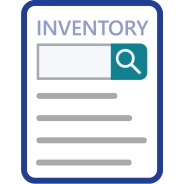
Choose from 5 options:
Utilising global chemical intelligence for innovation
Engagement with stakeholders will be an important part the Evaluation work undertaken under AICIS. We will be able to extend the Scheme’s reach and access to chemical intelligence to innovate and better inform evaluation outcomes. It should also fill chemical data gaps, put more certainty into our risk assessments and increase stakeholder confidence in the evaluations.
Continued engagement with Australian risk management agencies should promote effective risk management, enabling evaluation recommendations to be addressed by these agencies. Providing supporting information for risk management and identifying chemicals that are unlikely to require further regulation to manage risks should inform their decision making.
The Scheme’s key stakeholders include public, industry, workers, community groups, local and international regulatory bodies, academia, national networks and risk managers. These stakeholders play a pivotal role in the planning and implementation of AICIS evaluations. We will engage with stakeholders in a variety of ways to efficiently maximise their input and to promote the safe use of chemicals.
We will ensure our approach to evaluations continues to align with international best practice. Using global chemical intelligence will help us to innovate to improve our capability, develop new methodologies/approaches and produce high-quality evaluation outcomes.
Enabling global partnerships should also help build on resources, including the use of international data, innovative risk evaluation methods and processes. Taking part in global forums such as WHO, APEC and OECD will give us the opportunity for improved harmonisation of evaluation results.